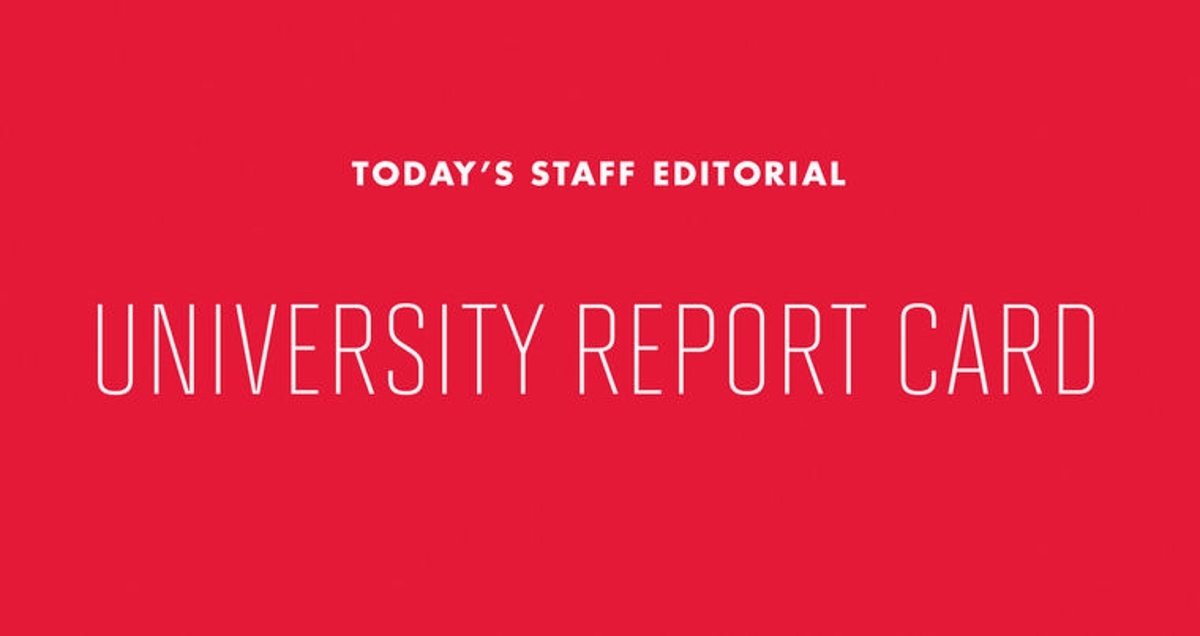Administration: C+
Far too often, this university has sent its students mixed messages. University President Wallace Loh showed support for undocumented students and criticized President Trump’s inflammatory rhetoric, then wrote off several of ProtectUMD’s demands that would have aided marginalized communities, such as when he deemed the need for a sanctuary campus “unnecessary.” Loh censured Trump’s travel ban and stood by international students, but this university will slap them with a new fee in the fall. And Loh hasn’t shown a commitment to his permanent diversity commissions despite praising this university’s diverse student body. Though we admire his defense of science and higher education, Loh and the university must take a stronger stand for students. After the Student Government Association voted in favor of an annual $34 student fee to help fund the Office of Civil Rights and Sexual Misconduct, which was later withdrawn, the administration announced four new positions to be added to the Title IX Office and two in the CARE to Stop Violence office. Transparent efforts such as this one that show an immediate commitment to students are too few and far between.
University Senate: A-
This university’s senate has pushed for important, progressive legislation in the past year, and this editorial board commends its intentions. Most notably, the senate passed a bill that would require face-to-face training in bystander intervention of sexual assault. While the bill took nearly two full semesters to pass — it was initially proposed in October and passed in April — we commend their commitment to helping students combat one of the most pressing issues facing college campuses. The senate moved swiftly in condemning Trump’s travel ban, however, calling it “detrimental to the national interests of the United States” in its February meeting.
RHA: A-
For as long as Loh will hand out turtle pins with an impish grin, the RHA will continue to face a barrage of student complaints, ranging from the quality of our diners to the size our parking lots. This year, they met these complaints with open ears and a willingness to listen. Despite a rocky start, Dining Services assuaged students’ culinary grievances through its transition to Anytime Dining. Meanwhile, the RHA Senate helped curb this university’s carbon footprint through a new Department of Transportation Services environmental impact assessment. Throw a fiercely debated mandatory student metro fee and new diversity outreach efforts, and the RHA’s list of accomplishments begins to tower over even the tallest of residence halls.
SGA: B-
The SGA faced an abundance of criticism this year, specifically regarding yet another virtually uncontested election. The One Party swept every race -— the vast majority of which were uncontested — after the Unity Party withdrew following a rules violation. This editorial board voiced concerns regarding the SGA’s exclusive pipeline, and acknowledged the SGA is at its best when its resources are put toward student empowerment rather than symbolic legislation. That’s not to say the SGA is entirely out of touch. The SGA’s Title IX fee proposal, though flawed, led to administrative action to aid sexual misconduct prevention. The Student Leadership Grant to aid low-income students displayed keen awareness of the difficulty of remaining engaged on the campus. This editorial board hopes to see more outreach and advocacy efforts next year.



